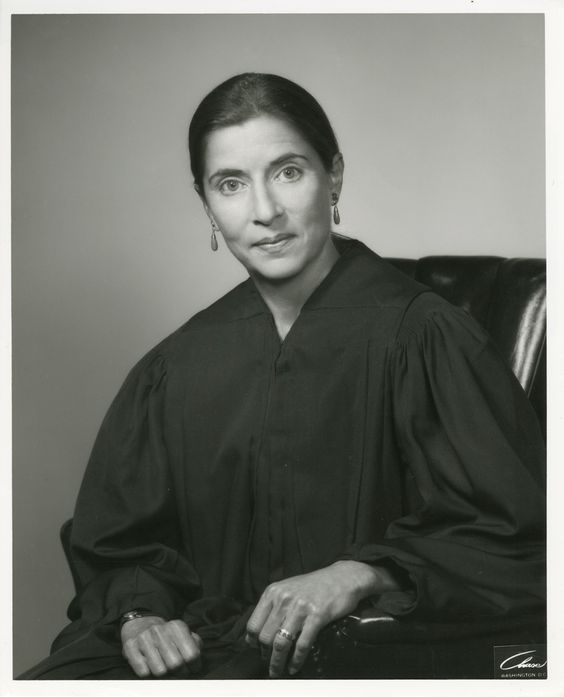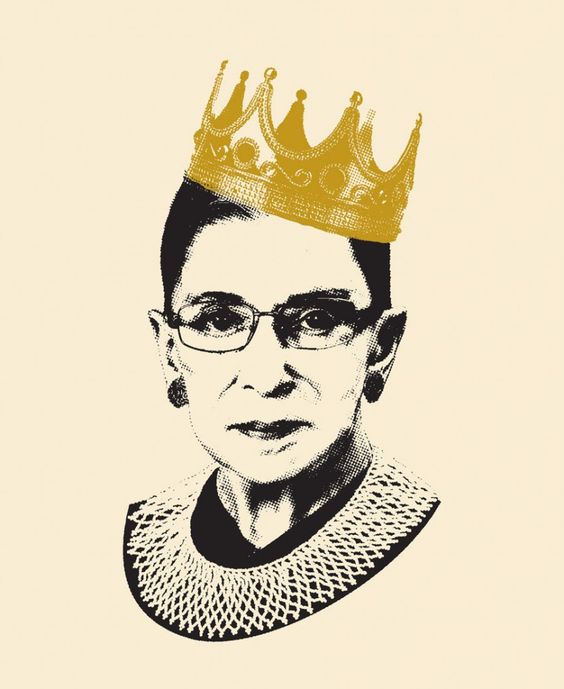From Me to You

Ruth Bader Ginsburg: Her Loss is personal to all of us
[dropcap]T[/dropcap]wo days have passed since the death of Justice Ruth Bader Ginsburg – and I am having some difficulty in putting pen to paper or even getting the words out on my blank screen. No one is compelling me to write this but it’s almost an exercise in articulating the loss to myself and understanding what she meant to so many of us across America, especially women and girls.
Last night we sat and watched ‘RBG’ on television, and her life unspooled on the screen – beautiful young woman, student, sweetheart, wife, mother – and a woman struggling not only to find her place but a place for all women. It was an eye-opener to see all that she went through to get where she was, and how she retained her grace and equanimity – and the steel and determination – within her, as she brought her formidable legal mind and fresh gaze to the Supreme Court and affected real change for women and minorities through her thoughtul dissents in a world of male judges.
Of course, the political implications of her passing can be horrendous and her absence on the Supreme Court can change life for so many people, and take us back to a regressive past. The country is on tenterhooks, waiting to see what happens next.
Her death seems such a painful, personal loss that I find myself mulling over it all the time, while working on other articles, picking up groceries or just staring out at the East River during my daily walk. So many rights that we take for granted as women and minorities are ours, thanks to RBG’s untiring efforts.
“It’s admittedly hard to separate the meaning of the death of such a towering figure from the political context surrounding it,” wrote Emma Hinchliffe in the Broadsheet. ” But as you pull out your credit card today to make a purchase, pay your mortgage, or get your next paycheck, think of the fundamental rights the justice secured for women in American law. It’s a legacy just as powerful as the one she leaves on the nation’s highest court.”
We are stronger because of her.

[dropcap]F[/dropcap]acebook is full of people’s personal thoughts on the way a far-away Supreme Court justice affected the fabric of so many ordinary people’s lives. Going through these posts is like being at an intimate memorial service. As journalist Chidu Rajghatta wrote on his FB page, “In all the years I’ve lived here, I’ve never seen such a spontaneous show of grief and sorrow. People simply walked to the Supreme Court the moment they heard of RBG’s death just before 8 p.m. Many sat quietly on the steps clinging to their friend or companion. Others were in a daze. Some wept. Suddenly they began to sing Amazing Grace.You don’t need blaring headlines or long obits to understand greatness.”
Here we share some diverse videos about her life and her legacy, her wit and her humanity; each shares something new, something illuminating, something poignant about her life.
Remembering Ruth Bader Ginsburg – The New York Times
NPR Interview
Love Story
What a beautiful loveletter – a love story for the ages. https://t.co/fYFW4tS2jX
— Lavina Melwani (@lavinamelwani) September 19, 2020
RBG – The Washington Post
Ten Things You didn’t know about Ruth Bader Ginsburg
[dropcap]T[/dropcap]housands of tributes, thousands of comments. So many heartfelt memorials. As one commented in The New York Times, “At first, I was too emotional to write anything. I wanted to curl into a ball and worry about the future of this country. But I owe Justice Ginsburg so much and I owe her a tribute like the thousands of others who have written about this magnificent person. Regardless of my emotions, my own weaknesses, I’m inspired by her courage, her bravery, and above all, her character. She wouldn’t curl up into a ball and fret. She’d get to work. She gave every bit of her strength to fight for our freedom and for our ideals. And so must we all.”
Indeed, each in our small way, we must uncurl ourselves from our grief, our fears and work to our full potential. As Justice Ruth Bader Ginsburg once said, “We are at last beginning to relegate to the history books the idea of the token woman.”
